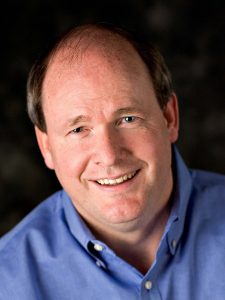For hundreds of years, people have been concerned about machinery taking their jobs, according to Gary Marchant, Lincoln Professor of Emerging Technologies, Law & Ethics at Arizona State University.
“All throughout the 20th century, people had concerns about this,” said Marchant, who is also a Regent’s Professor of Law and director of the Center for Law, Science and Innovation at ASU. “At one point, 50 or 60 percent of workers in America at the beginning of the 20th century were working in agriculture. That went down to 2 percent. … That’s always been the history over hundreds of years.”

But Marchant said that history has always included technology creating more jobs for people in the workforce, such as the rise of manufacturing in industrial cities. Yet as technology has advanced into the 21st century and artificial intelligence has been utilized more and more, Marchant said people are starting to question if this situation is different.
At 12:30 p.m. Monday, July 30, in the Hall of Philosophy, Marchant will deliver his lecture, “(When) Will a Robot Steal Your Job?” addressing concerns about artificial intelligence in the workforce and discussing possible solutions. His lecture is a part of the Lincoln Applied Ethics Series.
“First of all, what is the risk of this?,” Marchant said. “How likely is it that robots will take people’s jobs? … I think there’s no question that they will take some, and more and more over time.”
Marchant said that robots and computer programs powered by AI have a number of advantages that humans don’t across all fields in the workforce. They have the ability to quickly memorize massive amounts of information, they don’t need breaks or vacations and don’t take sick days.
But Marchant said humans have their own advantages over robots and computer programs.
“We have judgment and common sense,” Marchant said. “We have empathy, the ability to interact well and understand what other humans are going through and what they may need.”
Marchant said certain jobs will be more prone to being taken by robots than others. He will not only talk about the specific professions that are at risk, but also provide projections from different economists about how many total jobs may be lost in the near future.
“The estimates range anywhere, in the next 10 or 20 years, from 9 percent to 50 percent of all jobs,” Marchant said. “Maybe some of these new technologies, like artificial intelligence and so on, will replace those with new jobs. That’s always what’s historically happened in the past.”
But not everyone thinks history will repeat itself, according to Marchant.
“It doesn’t mean there won’t be serious disruptions even if we do have new jobs,” Marchant said. “But a lot of people are starting to think there many not be a lot of new jobs. Again, more and more, these computers can do better than a human. There may not be a huge increase in new jobs, in which case we’ll have a net loss of jobs.”
In addition to emerging technologies, Marchant teaches courses in law, governance of emerging technologies such as nanotechnology, neuroscience, biotechnology and artificial intelligence, and other fields. For his lecture, he will pull multiple areas of expertise to look at “the big picture” of this issue.
“We’re looking at legal intervention; what kind of legal steps could possibly be taken (and) looking at what is ethical to do,” Marchant said. “I teach courses and give a lot of lectures on artificial intelligence. … (I am) looking across those different areas to sort of give a big picture of the situation.”




